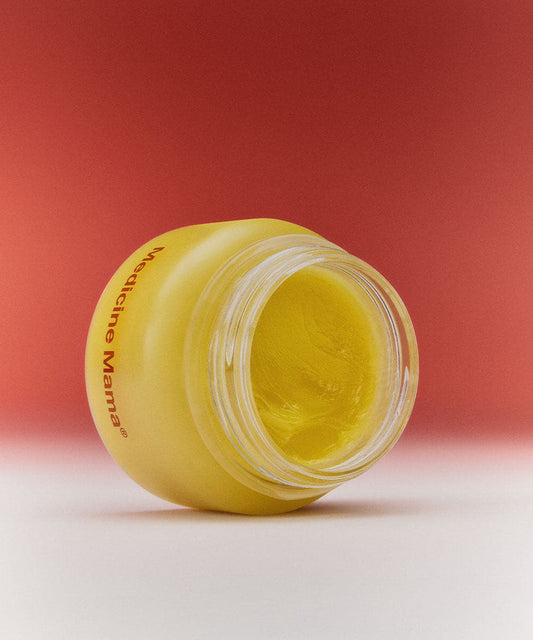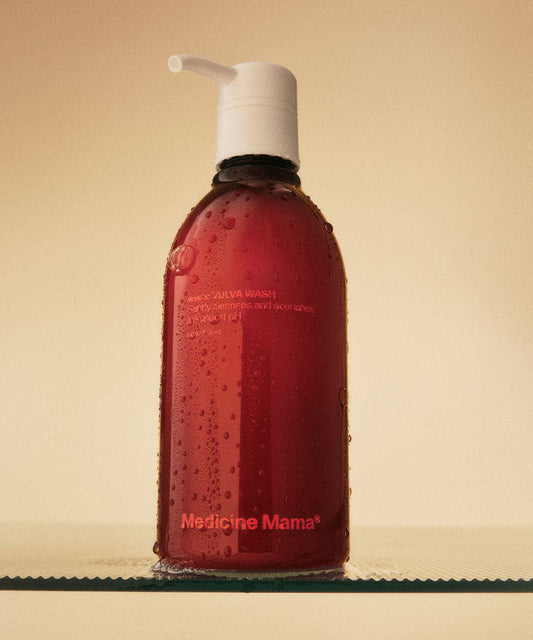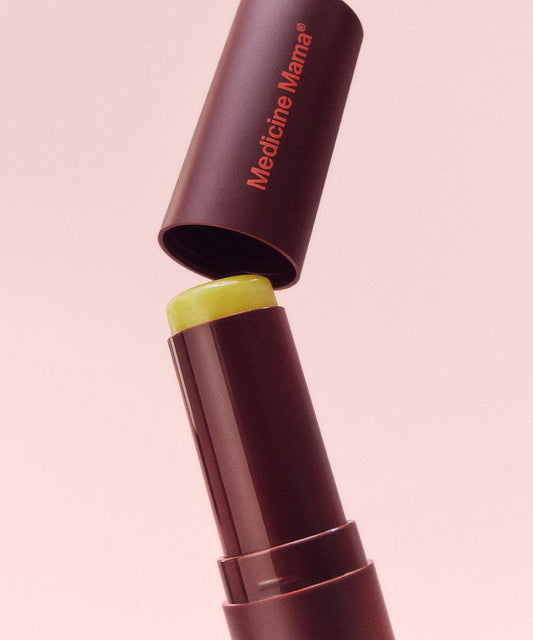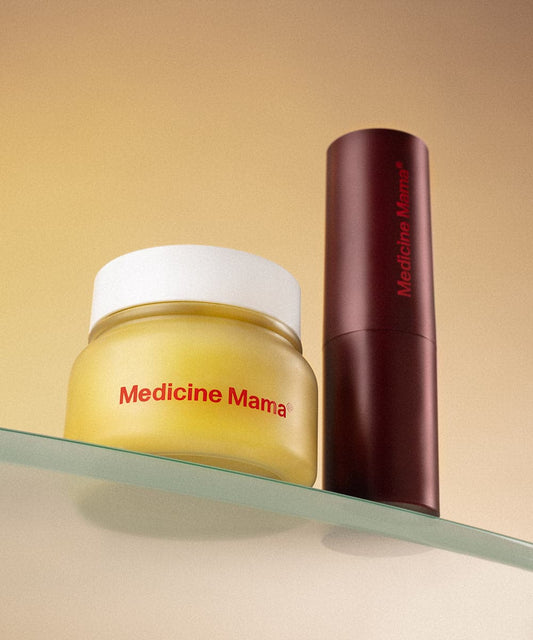Reviewed by | Dr. Clare Bertucio MD
Menopause can be a rollercoaster. It marks the shift into a new phase of life, and while there’s something to be said for leaving the trials of a monthly cycle behind, there’s some emotional baggage that often comes attached to menopause.
On top of dealing with this period of your life emotionally, menopause often comes with side effects as your hormones realign. One symptom that might catch you by surprise is itchy breasts. It's a less frequently discussed discomfort than well-known experiences like hot flashes, yet it affects a considerable number of women navigating through menopause.
The itchy sensation can vary from mild and occasional to incredibly frustrating, affecting daily activities and sleep patterns. Understanding these changes can help you feel more in control of this change in your life, enabling you to confront it with energy and confidence rather than anxiety and discomfort.
Why Am I Experiencing Itchy Breasts?
Itchy breasts during menopause are primarily driven by hormonal fluctuations. As estrogen levels decline, the skin loses elasticity and moisture, leading to dryness and irritation. This skin condition can be uncomfortable and sometimes alarming but is usually manageable with the right approach.
The decreased production of natural oils can also make the skin more susceptible to allergens and environmental irritants. These changes may also exacerbate pre-existing skin conditions like eczema, which can further complicate the picture.
These skin changes are a direct result of hormonal adjustments, and knowing that can help you to know how to discuss it with your healthcare provider or where to look for over-the-counter help.
It can also be empowering and comforting to simply know why certain things are happening to your body. By connecting this symptom to your menopausal state, you can let some of the worry around what else it might be go and focus on making it better.
How Can You Stop the Itching Now?
We’ll talk about longer-term strategies in the next section, but if you’re looking for support for your itchy breasts, we’ll hazard a guess that you’re looking for something that will help you right now. After all, there’s nothing more frustrating than a persistent itch!
To alleviate itchy breasts, start with your wardrobe. Opt for loose, breathable fabrics that minimize irritation. Cotton is particularly gentle on sensitive skin, and looser cuts will help to avoid any constricting or scratching that may be exacerbating the problem.
It’s possible that your itching breasts are also related to a product irritating your more vulnerable skin during menopause. Eliminating scented or irritating laundry detergents and skincare products can ensure your skin stays itch-free.
It’s also a good idea to avoid undergarments with rough textures or tight-fitting shapes to prevent additional friction that could worsen the itchiness. If you’re looking for an excuse to ditch your bra and embrace freedom, this is it.
In terms of skincare, applying hypoallergenic lotions right after showering can help lock in moisture and form a protective barrier over the skin. For some, applying a cool compress can provide temporary relief from the itching, offering comfort without the use of medications.
What About the Long Term?
Alongside quick fixes, adopting long-term lifestyle changes can profoundly influence the management of menopausal symptoms. Incorporating foods high in omega-3 fatty acids, like salmon or flax seeds, can support the health and appearance of your skin. It's also crucial to drink plenty of water throughout the day to keep your skin hydrated and supple.
Adding antioxidant-rich foods such as berries, nuts, and spinach to your diet can protect your skin cells from damage and support their renewal. As much as it may pain you, it’s also worth considering cutting back on caffeine and alcohol, as they can dry out your skin even more.
Getting enough sleep is another key player in managing symptoms over the long haul. Disrupted sleep doesn't just make you cranky — it can intensify other menopausal symptoms like skin irritation and mood swings.
Establish a soothing nighttime routine and create a cozy, inviting sleep environment to help improve your sleep quality, which in turn can help keep your skin feeling healthier.
What Are Other Menopause Symptoms?
As we’ve mentioned, menopause isn't just about hot flashes, night sweats, and itchy breasts — it comes with a whole suitcase of symptoms that can vary wildly from one woman to another.
Alongside the temperature swings and interrupted sleep, many women deal with mood changes, anxiety, forgetfulness, and a dip in sex drive. These changes can feel overwhelming, but knowing they're a normal part of menopause can make them easier to handle.
Vaginal dryness is another frequent flyer in menopause's symptom lineup. The drop in estrogen levels leads to thinner, drier vaginal walls, which can make sexual activity uncomfortable or even painful.
Dryness can make you more prone to urinary infections and can be irritating in everyday life, in addition to having a potentially negative impact on your sex life. If dryness around your vagina or vulva is frustrating you, using a moisturizer specifically formulated for your most sensitive areas may help, too.
Vaginal Moisturizer
As estrogen levels decline during menopause, it’s common to experience dryness, irritation, or sensitivity around the vulva. These changes are a natural part of the aging process, but they don’t have to be something you simply tolerate. Incorporating a gentle, non-hormonal vaginal moisturizer into your routine can provide meaningful relief and support ongoing skin health.
These types of moisturizers are crafted with sensitive skin in mind and are usually safe for everyday use. They work by restoring lost moisture and reinforcing the skin’s protective barrier, which can help soothe discomfort, reduce irritation, and improve resilience over time.
Look for formulas with creamy, nourishing textures that glide on smoothly and absorb well without a greasy finish. Used regularly, a high-quality vaginal moisturizer can support elasticity, softness, and an overall sense of comfort and confidence.
To apply, simply use clean, dry fingers to gently massage a small amount onto the vulvar area. Whether used daily or as needed, this simple practice can make a significant difference in how you feel during and after menopause.
What About Professional Treatments?
While many symptoms of menopause can be managed with over-the-counter products and lifestyle adjustments, professional guidance is crucial, especially when symptoms persist or worsen.
Healthcare providers can offer treatments tailored to individual needs, from hormone replacement therapy to other non-hormonal options. Consulting specialists, such as gynecologists, endocrinologists, and even dermatologists, can provide a comprehensive approach to managing menopause.
These professionals can evaluate your symptoms in the context of your overall health and recommend personalized treatment plans. They might suggest topical hormone therapies, vaginal moisturizers, or even antidepressants for mood swings and anxiety. Regular check-ups ensure the treatments remain effective and adjust as your body changes, providing a level of care and reassurance that self-management alone cannot offer.
Finding Harmony With Menopause
Menopause is a natural life stage that brings various challenges, including itchy breasts and other discomforts. Understanding the causes and available treatments can greatly improve your quality of life during this transition. Embracing these changes and addressing the symptoms head-on helps ensure that menopause is just another part of life's journey, not a disruption to it.
As you navigate through these changes, remember that menopause, like any other phase of life, offers an opportunity for growth and adaptation. With the right support and resources, you can manage the symptoms effectively and maintain your lifestyle without compromise.
This journey might also encourage you to explore new interests, develop closer connections with others going through similar experiences, and prioritize self-care, all of which can enrich your life during and beyond menopause.
Disclaimer: The information provided on this blog is for general informational and educational purposes only. All content, including text, images, graphics, and other material, is not intended to be a substitute for professional medical advice, diagnosis, or treatment.
Always seek the guidance of your physician or other qualified health professional with any questions you may have regarding a medical condition, treatment, or wellness program. Never disregard the advice of a medical professional or delay in seeking it because of something you have read on this website.
Sources:
What Is Menopause? | National Institute on Aging



